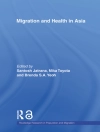The current scarcity of expert systems where the reasoning is based on Bayesian probability theory may be due to misconceptions about probabilities found in the literature. As argued by Cheeseman (1985), these misconceptions have led to the attitude: "The Bayesian approach doesn’t work – so here is a new scheme". Several of these expert systems based on ad hoc "probability" concepts have been successful in a number of ways, demonstrating the necessity of being able to handle uncertainty in medical expert systems. They also demonstrate the need for a theoretically sound handling of uncertainty. In Andersen et al. (1986) it was postulated that knowledge organized in a causal network can be used for a unified approach to the main tasks of a medical expert system: diagnosis, planning of tests and explanations. The present paper explores this postulate in a causal probabilistic network. It also provides a practical demonstration that the problems supposedly associated with probabilistic networks are either non-existent or that practical solutions can be found. This paper reports on the methods implemented in MUNIN* -an expert system for electromyography (EMG) (Andreassen et al. 1987). EMG is the diagnosis of muscle and nerve diseases through analysis of bioelectrical signals from muscle and nerve tissue. In Andreassen et al.
Rolf Engelbrecht & Marius Fieschi
AIME 87 [PDF ebook]
European Conference on Artificial Intelligence in Medicine Marseilles, August 31st – September 3rd 1987 Proceedings
AIME 87 [PDF ebook]
European Conference on Artificial Intelligence in Medicine Marseilles, August 31st – September 3rd 1987 Proceedings
Achetez cet ebook et obtenez-en 1 de plus GRATUITEMENT !
Langue Anglais ● Format PDF ● ISBN 9783642955495 ● Éditeur Rolf Engelbrecht & Marius Fieschi ● Maison d’édition Springer Berlin Heidelberg ● Publié 2012 ● Téléchargeable 3 fois ● Devise EUR ● ID 6383843 ● Protection contre la copie Adobe DRM
Nécessite un lecteur de livre électronique compatible DRM












